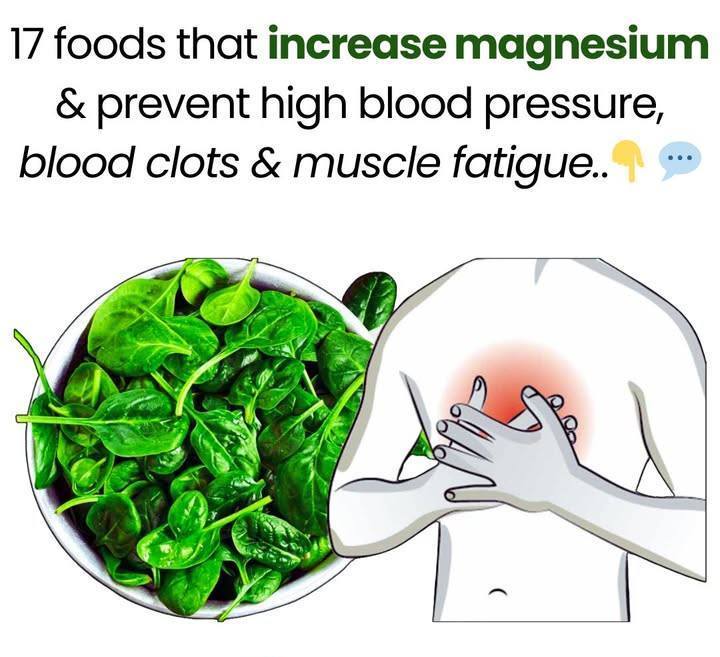-
The headline states: “17 foods that increase magnesium & prevent high blood pressure, blood clots & muscle fatigue…”
-
It implies that by eating those 17 foods, you can raise your magnesium levels and thereby prevent conditions such as high blood pressure, blood clots, and muscle fatigue.
-
The image shows spinach (a magnesium‑rich food) and a figure clutching their chest (implying cardiovascular risk) to visually reinforce that link.
What the message suggests
-
Magnesium deficiency is being positioned as a root cause of issues like high blood pressure, blood clots, and muscle fatigue.
-
Dietary intake of certain foods is presented as the “solution” — by consuming these 17 foods the risk of those conditions will be mitigated.
-
It is presented as a fairly direct cause‑and‑effect: eat these foods → increase magnesium → prevent the listed conditions.
Things to be cautious about
-
While it’s true that magnesium is important for many bodily functions (muscle function, nerve signalling, blood pressure regulation), the claim that simply eating 17 foods will prevent serious issues like high blood pressure or blood clots is over‑simplified.
-
Prevention of high blood pressure and blood clots usually involves a range of lifestyle factors (diet, exercise, weight, smoking status, genetics, other nutrients, medications) — not just one nutrient or one list of foods.
-
The statement “prevent … blood clots” is particularly strong; many clots are caused by complex factors (immobility, surgery, genetics, other health conditions) not simply magnesium status.
-
The number “17 foods” is arbitrary and likely used for click/viral appeal rather than based on a specific authoritative list of exactly 17 items.
What the research supports
-
Magnesium does play a role in regulating blood pressure: lower magnesium intake has been associated with higher blood pressure in some studies.
ADVERTISEMENT

